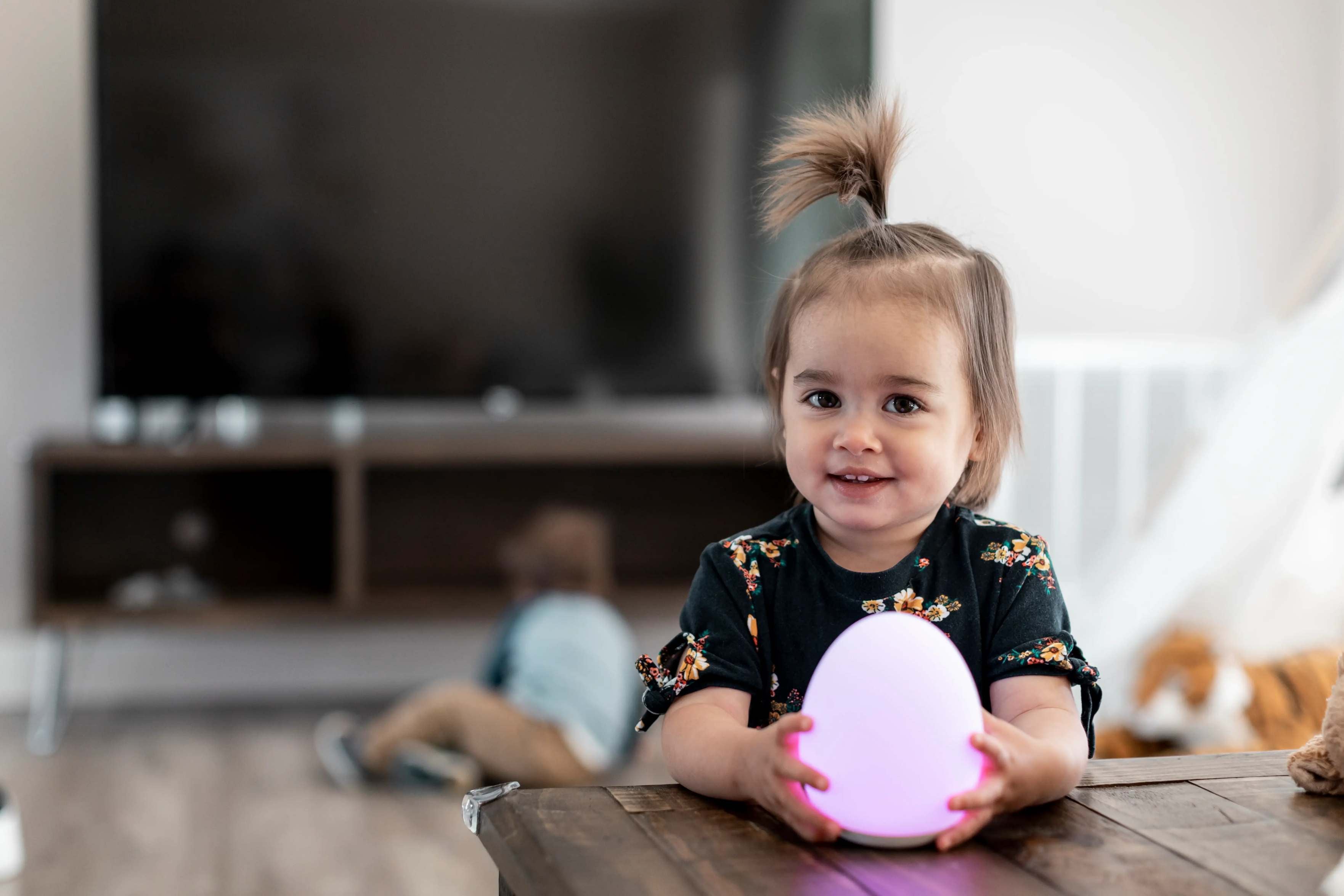One of the most soothing sights is seeing your baby sleep until you notice their breathing seems quicker than usual. You may naturally become worried and wonder whether something may be amiss.
Fast breathing is often a typical aspect of newborn growth. Still, knowing when it's safe and when it can call for attention makes all the difference.
This article will cover why newborns occasionally breathe rapidly in their sleep, what is usual, and when it is appropriate to get aid for your child's welfare or your peace of mind.
Newborn Breathing Patterns
It’s completely expected to be concerned when you notice a newborn breathing fast while sleeping. But in most cases, this kind of breathing is just a normal part of early development.
Newborns have immature respiratory systems that are still learning to regulate themselves. As a result, they may go through short periods of rapid breathing during sleep, followed by slower or even brief pauses. This pattern, known as “periodic breathing” is common in the first few months of life and typically improves by around 4 to 6 months.
How Sleep Stages Affect Breathing
During Rapid Eye Movement (REM) sleep, it’s common to notice irregular breathing patterns. You might see your baby breathe rapidly for about 10–12 seconds, followed by a pause lasting 5–6 seconds.
It’s a normal occurrence in newborns. And remember, it can happen whether your baby is sleeping or awake, and it is not typically a sign of any medical issue. As your baby grows and their body matures, their breathing becomes more regular and consistent, usually by 6 months of age.
Heart Rate and Breathing Rate in Babies
Understanding your baby's heart rate and breathing rate can give you confidence and help you detect any irregularities early. These vital signs naturally vary depending on your baby's age and activity, whether they're awake, asleep, feeding, or crying.
Many parents find that using a baby oxygen monitor provides peace of mind. These devices can track your baby’s heart rate, breathing patterns, and oxygen levels in real time, offering helpful insights into their overall well-being.
- Normal Heart Rate
Newborns tend to have faster heartbeats than older babies and adults. As they grow, their heart rate gradually slows down.
-
0–1 month (awake): 100–160 beats per minute
-
1–12 months (asleep): 80–160 beats per minute
- Normal Breathing Rate
A baby’s breathing rate can fluctuate slightly, especially during sleep, feeding, or crying. While occasional changes are normal, consistently high or labored breathing could indicate a problem. To track these patterns, many parents use a baby breathing monitor. These devices track patterns and detect any concerning changes early.
-
0–1 month: 40–60 breaths per minute
- 1–12 months: 20–40 breaths per minute
Mouth Breathing in Infants: What to Know
A common concern among parents is: Can babies breathe through their mouth? The short answer is not at first. Newborns are considered obligate nose breathers, which means they rely almost entirely on their noses to breathe.
This natural preference for nasal breathing helps keep the airways moist and allows babies to breathe while feeding. It also helps filter and warm the air before it reaches their lungs.
But when can babies breathe through their mouths? Around 3 to 4 months of age, most infants develop the ability to switch between nose and mouth breathing. At this point, their airways and reflexes are mature enough to support both breathing routes, similar to older children and adults.
Occasional mouth breathing while crying or experiencing a stuffy nose is normal. However, if your baby frequently or consistently breathes through their mouth while at rest, it could be a sign of an issue, such as:
- Nasal congestion or blockage
- Allergies
- Enlarged adenoids
- A structural problem in the nasal passages
When Should You Be Concerned?
As a parent, you're closely tuned into your baby’s sleep and breathing rhythms. So when you notice your baby breathing fast while sleeping, it's natural to feel concerned.
In many cases, rapid breathing is harmless. But certain signs may indicate that it’s time to seek medical attention, such as:
- Breathing rate consistently over 60 breaths per minute
- Noticeable effort to breathe, such as chest retractions or flaring nostrils
- Bluish tint around the lips, face, or fingertips (a sign of low oxygen)
- Unusual sounds while breathing, such as grunting, wheezing, or persistent coughing
- Pauses in breathing longer than 10 seconds, especially if accompanied by other symptoms
Pro Tip: Using a baby monitor can help you stay aware of these changes in real time. While not a diagnostic tool, it allows you to visually check your baby’s breathing and movements in real time so you can respond quickly.
What to Do If You Notice Unusual Breathing
If you notice unusual signs like a change in lip color, faster or troubled breathing, or chest retractions. You must stay calm and composed, but attentive. According to experts, babies can have some irregular patterns, but certain symptoms may point to something more serious.
Trust your instincts. As a parent, you know your baby best. If something feels off, it’s always better to err on the side of caution and consult your pediatrician. Prompt action can make all the difference when it comes to your baby’s well-being.
Key Takeaways
By learning how a baby breathes, their normal breathing rate and patterns during sleep, and the key warning signs to watch for, you’ll be better prepared to care for your baby. This knowledge, along with the right tools like a baby monitor, can help you stay proactive and respond early to any potential issues, giving both you and your baby greater comfort and peace of mind.





Share: